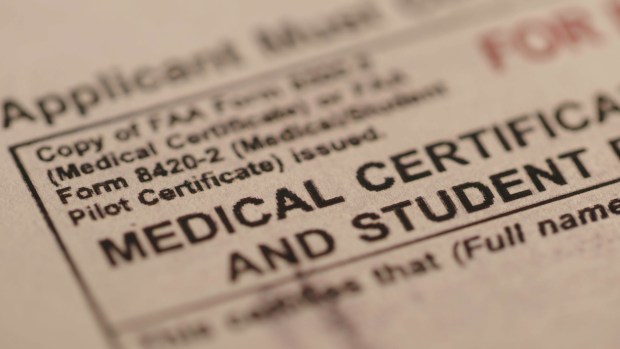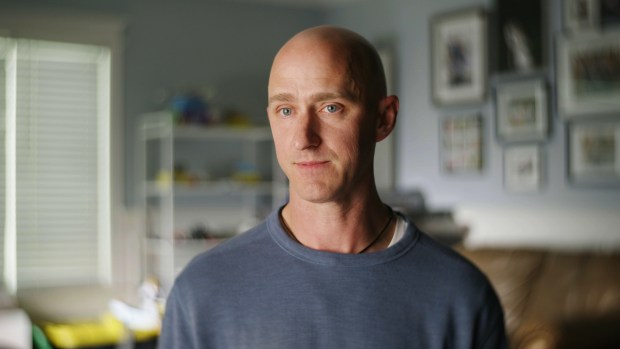‘Lie to Fly’ review: Why pilots don’t disclose mental health issues to keep flying
Last October, an off-duty Alaska Airlines pilot tried to sabotage the plane by shutting down the engines. That story was explored on “Lie to Fly,” and if it sounds like the type of true crime that’s often fodder for a show like “Dateline,” it’s not. “Lie to Fly” is the latest installment in FX’s “New York Times Presents” documentary series, and it’s a moving and gripping look at why this man became the man he became. and mental breaks, but also why that relates to what many experts argue are irrelevant FAA regulations. surrounding mental health and the use of medication to treat stress and anxiety.
Joseph Emerson was a long-time pilot and pilot before the infamous plane. Married with children, he has an unassuming appearance and appears to be kind and honest. But the sudden death of his best friend left him in mourning. “It was the first time that someone important and important in my life disappeared.” Going to a psychiatrist who could prescribe antidepressants was a no-go. Suddenly I couldn’t fly planes.
That’s because the FAA has a long process when it comes to medical certification for pilots who report health issues. “I can honestly say I’ve had pilots come to me and not disclose medical conditions,” says flight medical examiner Brent Blue. “I can say with certainty that there are airline passengers who do not disclose mental health issues. I think it’s actually a common issue, lack of disclosure, because they don’t want to go into the FAA process. ”
The fear is that they will be given their certificate for a long time and will not be able to work. That means some pilots choose to take matters into their own hands (literally, lie to fly) and in Emerson’s case, it led to a bad decision that he clearly regrets. .

While we were back in the mountains with friends, someone brought psychedelic mushrooms and encouraged Emerson to try them. “People around me that I trust do this thing and say it makes them feel better.” He says it was a strange thing for him to think about, but at the time, due to being depressed for so long, “my barriers to using them were removed.” Instead of feeling calm or surprised, Emerson says he felt paranoid — “very alone and very scared, afraid of these people I knew so well. I remember being scared.” that they will kill me”—and he says he could not tell whether he was dreaming or awake.
Two days later, when he arrived at the airport to board his flight home, he was sleepless and still very upset. While sitting in the pilot’s seat in the cockpit, he said his anxiety increased and he reached the controls before both pilots stopped him. Imagine you have a nightmare and you do something rash to wake up; is how Emerson describes the moment. When he was overpowered and taken to the back of the plane, he told the flight attendant, “I don’t know what it is,” and asked to be cuffed. It was a harrowing experience for all involved, and it was only when Emerson was back on the floor and arraigned in court that he finally understood “the enormity of what had just happened. And that I was there in life.”
Emerson is out on bail and still faces state and federal charges. His trial is expected to begin in the fall. Not mentioned here – and it’s not clear – is why he and his lawyer agreed to the interview. Is this an attempt to influence opinion about the case? Maybe. None of this comes across as sarcastic or conniving and it was probably a smart choice to make the documentary because you feel a real sympathy for Emerson, who seems to be a decent person in a bad situation. , and felt very ashamed of all this. I doubt many will walk away thinking that if he is found guilty, the sentence will be very severe. Maybe some viewers will feel a little uncomfortable. But being more specific about Emerson’s motivations for getting involved in the project makes sense. As viewers, we should hold these types of journalistic efforts in high esteem.
That said, Emerson’s story is a case study for major documentary interests, related to FAA policies.
“Does the test really mean that the pilot is unfit to do his job? In most cases, that’s an open question,” says Dr. William Hoffman, an aviation professor at the University of North Dakota. Experts interviewed They also agree that there needs to be a mental upgrade in how the FAA deals with these issues.
There are local angles here. US Rep. Sean Casten of Illinois (6th) hopes to see changes to the FAA. And a couple from Chicago, Alan Hauser and Anne Suh, are talking about their son, John. He was a college student studying to be a pilot. Three years ago, before taking a solo flight, he wrote a message to his parents to tell them he loved them. A few hours later, they learned that he had crashed his plane on purpose and shared their thoughtful and moving story. In a letter left by John, he writes: “If there is anything you can do for me, make the FAA change its rules regarding pilots seeking help for mental health.”

The document does not say whether there are people who support the current FAA system, which would be useful to know. But at least one agency representative makes it clear that a lack of funding and staff has created a backlog that is contributing to the long delay. The film also fails to examine the values of other artists. What are the rules regarding the use of antidepressants for train engineers or bus drivers or truck drivers? Are those policies different from the FAA? If so, why? Also, if a project like this has media coverage – if that’s one of its main selling points – it has to be tough on the media.
However, “The Flying Lie” makes a compelling case that the current system is failing everyone.
“Many pilots have mental health problems that they don’t disclose,” says Hauser. “So we think the choice between healthy pilots and protecting the traveling public is a bad choice. We think there are pilots in the cockpit right now with chronic mental health issues.
“So the real conclusion is, is the flying public going to be safer if we catch those pilots, or if we don’t catch those pilots?”
“The New York Times presents: Lies Fly” – 3 stars (out of 4)
Where to watch: 9pm Friday on FX (streaming on Hulu)
Nina Metz is a columnist for the Tribune.
Originally published:
#Lie #Fly #review #pilots #dont #disclose #mental #health #issues #flying